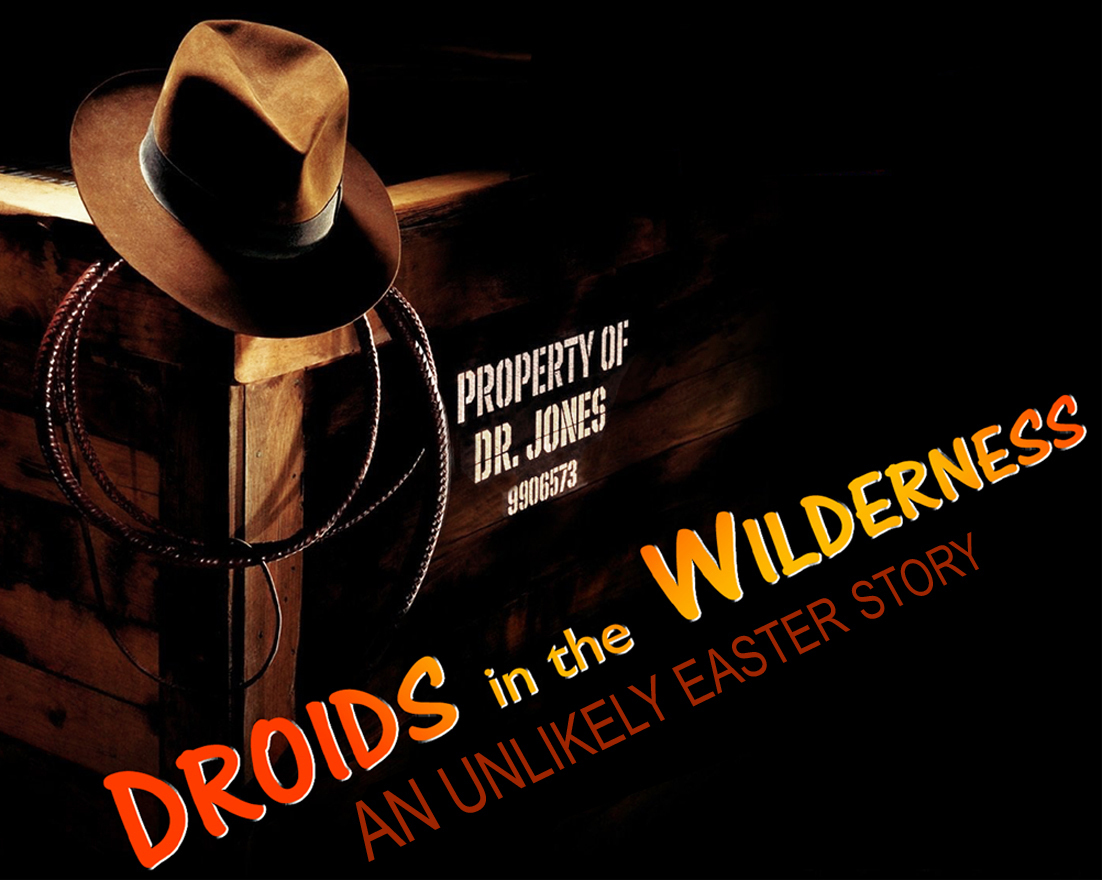
EASTER IN THE WILDERNESS
John 6:48-51 - "I am the bread of life. Your ancestors ate the manna in the wilderness, yet they died. But here is the bread that comes down from heaven, which anyone may eat and not die. I am the living bread that came down from heaven. Whoever eats this bread will live forever. This bread is my flesh, which I will give for the life of the world.”
For some, the term ‘Easter egg’ will invoke the image of childhood craft-time spent decorating hard-boiled eggs in all manner of pale pastels. For others, the term is reminiscent of the small, elliptical chocolates wrapped in foil that, due to an over-zealous hider or under-zealous seeker, continue to be found around the house long after Easter has come and gone. However, there will also be a few who hear the term ‘Easter egg’, and think of the recent spate of superhero movies that very shrewdly and subtly insert background references to the wider cinematic universe in which the film is set.
Producers of these latest movies have discovered that hiding these clever, little Easter eggs into their movies is an effective way of keeping their fans engaged and slyly creating connections between other characters and plots that are not overtly portrayed in the film; but the idea of hiding Easter eggs in a movie is not a new concept. In fact, the 1981 film, Raiders of the Lost Ark, contains an Easter egg which has fascinated fans for years. Indiana Jones’ journey through the Egyptian desert eventually brings him to an ancient cavern in which a gold pillar can be seen bearing several small hieroglyphic symbols, and one of the symbols engraved on that pillar is an image of C-3P0 and R2-D2, the popular droids from the Star Wars franchise. The appearance of these Star Wars characters in the world of the famed, fedora-clad archeologist quickly captured the attention of movie fans and led to much speculation about a connection between the two franchises.

As much as these kinds of Easter eggs may seem like a creation of our modern cinematic age, they are actually much older. Almost 3,500 years before Dr. Jones was running around the deserts of Egypt, bull-whip in hand, Israel was beginning to make their way through the very same wilderness landscape, when God sent them an ‘Easter egg’. After a month into their desert journey, God’s people began to run short on food, and lamentably, in what became something of a trademark response to their adversities, Israel doubts that God will meet their needs (Ex.16). God’s people complain about their predicament and even long to return to Egypt, but in His grace and faithfulness, the Lord provides them with the food they need. God declares to Israel that He will rain down bread from heaven, and this sustenance from God’s celestial bakery comes to be called ‘manna’. For the entirety of their wilderness journey, right up until their feet cross the Jordan River and stand on the fertile ground of the Promised Land, God’s manna sustained His people… but that is not the last we hear of God’s bread from heaven.
Forty years, morning by morning, manna provided physical nourishment to Israel in the wilderness, but it could never renew their minds; it could never transform their grumbling, wayward, doubt-filled hearts. Manna could not meet the spiritual needs of God's people; it was unable to address their most desperate need… the need of salvation from sin, but it alluded to a provision that could. Manna was pointing to the coming of an ultimate, spiritual provision; it was pointing toward a time, 1500 years after Israel’s journey in the wilderness, when God would again provide bread from heaven. Manna was pointing toward Easter. The next time God sent His heavenly bread, it was not sustenance transported to the desert floor in the morning dew, and it was not just for Israel. This time, the bread from heaven was LIVING bread offered to all of humanity; the supreme provision from God that satisfies spiritual hunger and conquers spiritual death, for any who believe.
During this commemorative time of year the world may be pre-occupied with bunnies and chocolate, but our attention is captivated by the gracious provision of God’s own Son as the sacrifice and payment for our sin. We exalt Him as God’s ultimate provision that must be consumed in faith if one is to be saved from the judgment of sin. We remember that Jesus was the One cursed, afflicted, debased and rejected so that we can find blessing, wholeness, peace and acceptance with God. We reflect on THE bread whose flesh was a life-giving provision for us; His body pierced, beaten and hung on a cross for our iniquity. We honor Christ this Easter as the living bread come down from heaven… we worship Him as God’s most extravagant provision.
Then Jesus took a piece of bread, gave thanks to God, broke it and gave it to them saying, 'This is my body that has been provided for you. Do this in memory of me.' - - Luke 22:19
